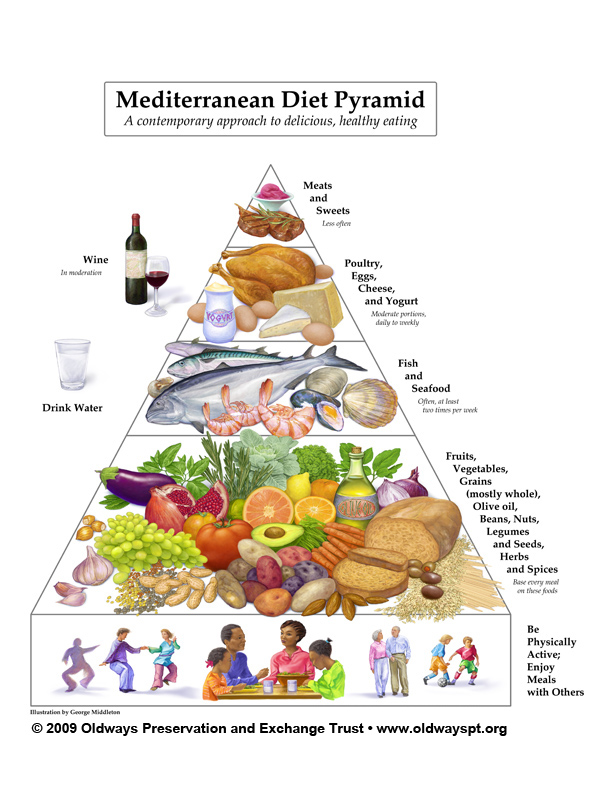Women Who Eat Healthiest Live 40% Longer
Women who follow a Mediterranean style diet are 40 percent more likely to survive to age 70 or over, according to Cecilia Samieri, a postdoctoral fellow at Harvard Medical School and Brigham and Women’s Hospital in Boston. In fact, the women who ate healthier not only lived longer, but they also had a higher quality of life, experiencing lower rates of heart disease, diabetes , or other chronic diseases as well as less impaired in physical functioning, mental health or cognitive skills. The research did not, however, prove a cause-and-effect link between better eating and longer life.
Achieving a 40 percent boost was a surprising findings. However, only 11 percent of the participants met the goal of eating a Mediterranean diet consistently. A Mediterranean diet emphasizes:
- Plant-based foods, such as fruits and vegetables, whole grains, beans/legumes and nuts
- Reliance on olive oil and other vegetable oils with little or no butter or margarine
- Using herbs and spices for flavor, rather than salt
- Eating more beans, nuts and seafood, with less poultry and little red meat
- Enjoying a glass of red wine (if you like)
The diet also recognizes the importance of being physically active, and enjoying meals with family and friends.
For the full Article: Ann Internal Med

